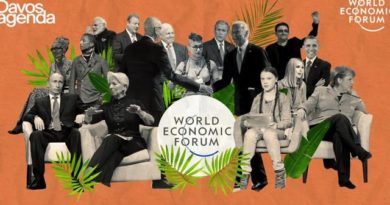Explained Ideas: What is The Great Reset and why is it controversial

The Great Reset is an initiative by the World Economic Forum. It has been conceptualised by the founder and executive chairman of the WEF, Klaus Schwab, and has evolved over the last few years. It is based on the assessment that the world economy is in deep trouble. Schwab has argued that the situation has been made a lot worse by many factors, including the pandemic’s devastating effects on global society, the un- folding technological revolution, and the consequences of climate change.
Schwab demands that “the world must act jointly and swiftly to revamp all aspects of our societies and economies, from education to social contracts and working conditions. Every country, from the United States to China, must participate, and every industry, from oil and gas to tech, must be transformed. In short, we need a ‘Great Reset’ of capitalism.”
The agenda of The Great Reset touches on many key issues facing the world, according to C Raja Mohan, director, Institute of South Asian Studies, National University of Singapore and contributing editor on international affairs for The Indian Express.
Three of them stand out.
First is the question of reforming capitalism. Davos has been at the forefront of calling for “stakeholder capitalism” that looks beyond the traditional corporate focus on maximising profit for shareholders.
Second, Davos is certainly right to focus on the deepening climate crisis. Climate sceptics have been ousted from Washington and President Biden has rejoined the 2015 Paris accord on mitigating climate change.
Third is the growing difficulty of global cooperation that Davos wants to promote. The era of great power harmony that accompanied the liberalisation of the global economy at the turn of the 1990s has yielded place to intense contestation. The contestation is not just political but increasingly economic and technological.
But whether it is a clever gimmick or a serious attempt to produce structural changes in the organisation of global capitalism, the initiative has set off furious conspiracy theories on the right and contemptuous dismissal from the left.
Mohan explains why this is so.
“The right sees the WEF arguments about restructuring the global economy as a dangerous attempt to impose ‘socialism’ and dismantle the traditional society, or what remains of it. The left scoffs at the Davos Man’s talk on the crisis of capitalism. It points to the complicity of the Davos forum in promoting policies that have brought the world to the current impasse and question its capacity to produce solutions,” writes Mohan.
*** This article has been archived for your research. The original version from The Indian Express can be found here ***


